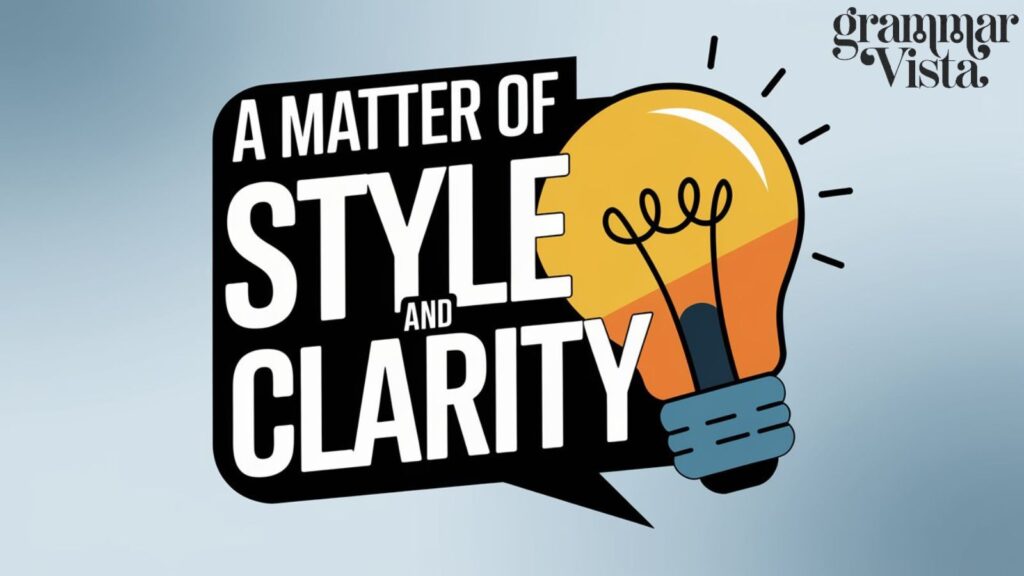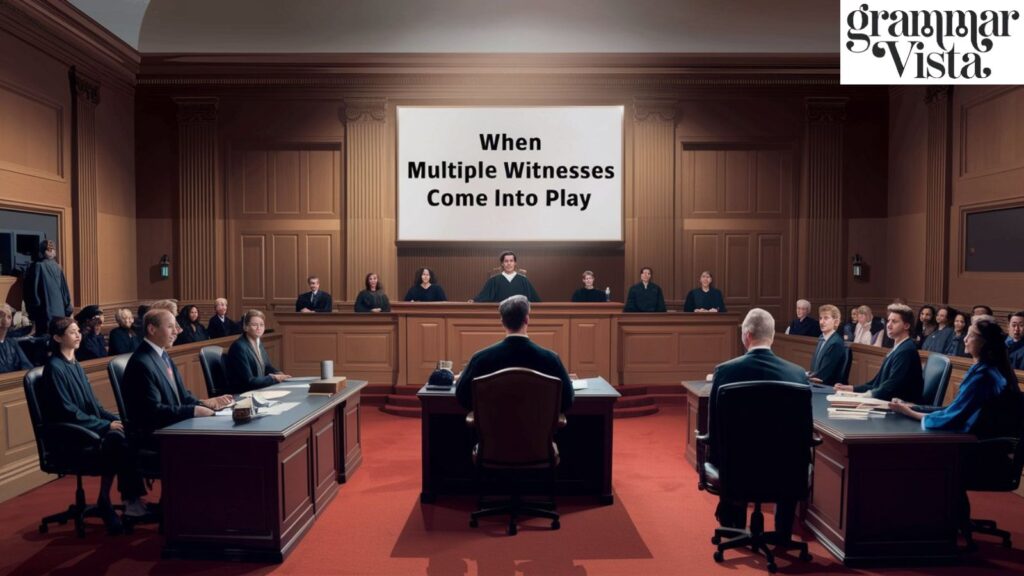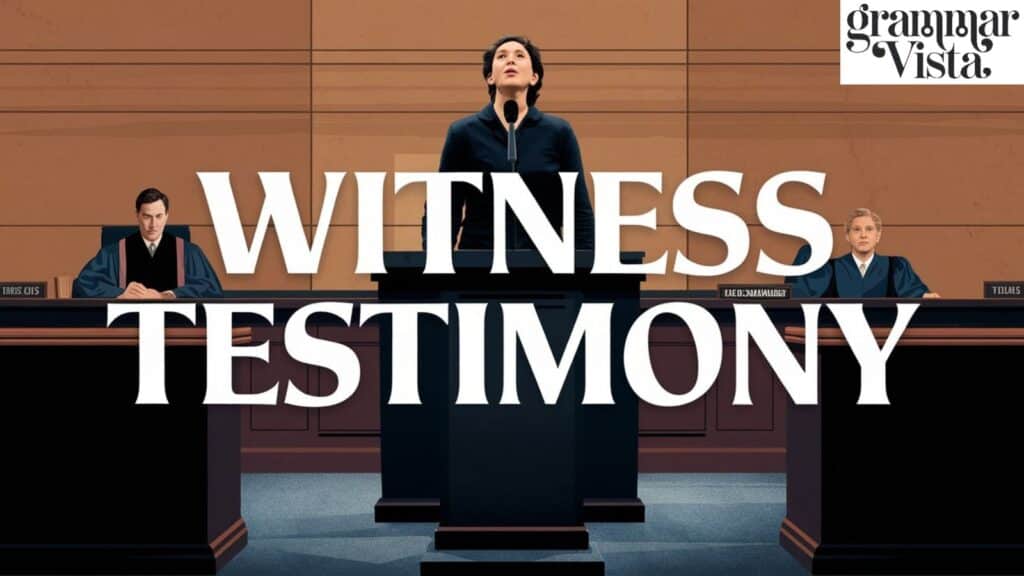In the realm of English grammar, few topics spark as much debate as the proper use of possessives. Whether you’re a budding writer, a legal professional, or simply someone striving for language mastery, understanding the nuances of possessive forms can significantly enhance your linguistic skill. This article delves into the intricacies of possessives, with a particular focus on the word “witness” and its various forms.
If you are really interested to be damn sure while using the confusing grammar words, like Witness’ or Witness’s or Witness, this article is for you!
The Singular Possessive: A Matter of Style and Clarity

When it comes to forming the singular possessive of “witness,” we encounter two acceptable variations: witness’ and witness’s. Both forms are grammatically correct, but the choice between them often depends on the style guide you’re following or personal preference.
The form “witness'” follows the traditional rule that words ending in ‘s’ only need an apostrophe to show possession. On the other hand, “witness’s” adheres to the modern trend of adding ‘s to most singular nouns, regardless of their ending, to form the possessive.
Let’s explore some scenarios to illustrate the use of these forms:
- “The witness’ testimony was crucial to the case.”
- “The witness’s account of the events differed from the official report.”
Both sentences are correct, but the second form (witness’s) is becoming increasingly common in modern writing style.
Plural Possessive: When Multiple Witnesses Come into Play

When dealing with multiple witnesses, the plural form “witnesses” becomes our focus. To form the plural possessive, we simply add an apostrophe after the ‘s’:
- “The witnesses’ statements corroborated each other.”
This grammar rule applies consistently to plural nouns ending in ‘s’, making it relatively straightforward compared to the singular form.
- Read More about Business’ or Business’s?
Witness Testimony: The Heart of Legal Proceedings

In a court case, witness testimony often plays a pivotal role. The accuracy of a witness’s (or witness’) account can make or break a case. Consider this scenario:
- “The defense attorney challenged the reliability of the witness’s testimony, arguing that the witness’ recollection of events was inconsistent with the physical evidence presented.”
Here, we see both forms of the singular possessive used in the same sentence, demonstrating that either can be employed effectively in legal statements.
Style Guides: The Arbiters of Grammar
Many writers and professionals turn to style guides for direction on grammar and punctuation. These language manuals often have specific recommendations regarding possessive forms. For instance:
- The Chicago Manual of Style recommends using ‘s for singular possessives, even when the word ends in ‘s’.
- The Associated Press Stylebook suggests using only an apostrophe for singular nouns ending in ‘s’.
Understanding which stylebook to follow can greatly simplify your writing process and ensure consistency in your work.
Court Cases: Where Precision Matters Most
In legal cases, the precision of language is paramount. Every detail in a witness account can impact the trial process. For example:
- “The prosecution relied heavily on the witness’s detailed description of the suspect’s appearance and actions during the alleged crime.”
In this context, the clarity provided by the ‘s in “witness’s” might be preferred to avoid any potential ambiguity.
You might be interested in Wife’s or Wives’?
Testimony Details: Painting a Picture with Words
The detailed account provided by a witness often forms the backbone of a case. Consider this scenario:
- “The witness’s vivid recollection of the night in question painted a clear picture for the jury, from the suspect’s distinctive tattoo to the exact words exchanged during the confrontation.”
Here, the possessive form emphasizes the personal nature of the testimony, highlighting the witness’s unique perspective.
Apostrophe Use: More Than Just Possession
While we’ve focused on possessives, it’s worth noting that apostrophes serve other functions in English. They’re used in contractions (e.g., “it’s” for “it is”) and to form plurals of letters and numbers (e.g., “mind your p’s and q’s”). Understanding these various uses is key to overall grammar expertise.
Legal Evidence: Beyond Witness Accounts
While witness testimony is crucial, it’s just one form of legal evidence. Other types include physical evidence, expert testimony, and documentary evidence. Each piece must be carefully presented and considered:
- “The defense attorney argued that the physical evidence contradicted the witness’s account, casting doubt on the reliability of the testimony.”
Language Mastery: A Continuous Journey
Achieving true language mastery involves more than just memorizing rules. It requires a deep understanding of context, style, and the ever-evolving nature of language. The debate over “witness'” vs. “witness’s” is just one example of the complexities that make English both challenging and fascinating.
Police Investigation: Where Details Matter
In a police investigation, the accurate recording of witness statements is crucial. Consider this scenario:
- “The detective carefully noted the witness’s description of the getaway vehicle, knowing that even the smallest detail could be the key to cracking the case.”
Here, the possessive form emphasizes the individual nature of each witness’s contribution to the investigation.
Detail Description: The Power of Thorough Accounts
A thorough description can make all the difference in a legal context. For instance:
- “The witness’s meticulous account of the suspect’s movements, from the time he entered the building to the moment of the alleged crime, provided a timeline that became central to the prosecution’s case.”
The possessive form here underscores the personal nature of the witness’s observations.
Grammar Insight: Beyond Rules to Understanding
True grammar knowledge goes beyond memorizing rules. It involves understanding the logic behind those rules and how they contribute to clear communication. The debate over possessive forms is a perfect example of how grammar evolves to meet the needs of clarity and style in language.
Read More grammar lessons on GrammarVista
Conclusion: Embracing the Complexity of Language
In the end, whether you choose “witness'” or “witness’s” may depend on your style guide, personal preference, or the specific context of your writing. What’s most important is consistency within a single document or body of work.
Remember, language is a tool for communication. While rules and guidelines are important, the ultimate goal is clarity. Whether you’re writing a police report, presenting legal evidence, or simply striving for better writing proficiency, understanding the nuances of possessives will serve you well.
So, the next time you find yourself pondering over “witness'” or “witness’s,” take a moment to consider your audience, your style guide, and the clarity of your message. And remember, in the grand tapestry of language, this small detail is just one thread in the rich and complex fabric of English grammar.
In addition to writing police reports and providing legal evidence, the daily work of a public servant is very important and meaningful. If you want to commemorate your career as a public servant, or want to find a suitable gift for a public servant friend, then Custom Pins is a very good choice.
You can choose career-related logos, professional titles, or encouraging words as materials, and customize them with colors and shapes that match the identity of a public servant.
Unique custom pins can not only reflect the uniqueness of the work of public servants, but also serve as a driving force to motivate them to achieve better achievements in their work.








